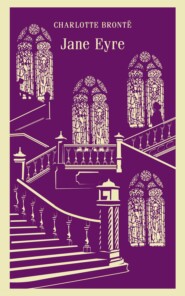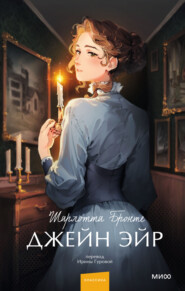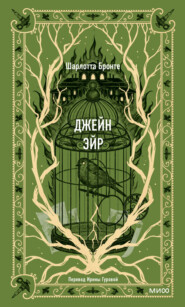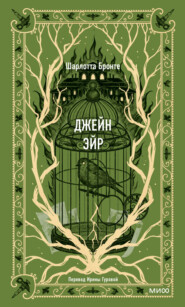По всем вопросам обращайтесь на: info@litportal.ru
(©) 2003-2024.
✖
Villette
Настройки чтения
Размер шрифта
Высота строк
Поля
"Because he is a foreigner? or for what other reason of equal weight?"
"He is not a foreigner. The man is English enough, goodness knows; and had an English name till three or four years ago; but his mother was a foreigner, a de Bassompierre, and some of her family are dead and have left him estates, a title, and this name: he is quite a great man now."
"Do you hate him for that reason?"
"Don't I know what mamma says about him? He is not my own uncle, but married mamma's sister. Mamma detests him; she says he killed aunt Ginevra with unkindness: he looks like a bear. Such a dismal evening!" she went on. "I'll go no more to his big hotel. Fancy me walking into a room alone, and a great man fifty years old coming forwards, and after a few minutes' conversation actually turning his back upon me, and then abruptly going out of the room. Such odd ways! I daresay his conscience smote him, for they all say at home I am the picture of aunt Ginevra. Mamma often declares the likeness is quite ridiculous."
"Were you the only visitor?"
"The only visitor? Yes; then there was missy, my cousin: little spoiled, pampered thing."
"M. de Bassompierre has a daughter?"
"Yes, yes: don't tease one with questions. Oh, dear! I am so tired."
She yawned. Throwing herself without ceremony on my bed she added, "It seems Mademoiselle was nearly crushed to a jelly in a hubbub at the theatre some weeks ago."
"Ah! indeed. And they live at a large hotel in the Rue Crécy?"
"Justement. How do you know?"
"I have been there."
"Oh, you have? Really! You go everywhere in these days. I suppose Mother Bretton took you. She and Esculapius have the entrée of the de Bassompierre apartments: it seems 'my son John' attended missy on the occasion of her accident – Accident? Bah! All affectation! I don't think she was squeezed more than she richly deserves for her airs. And now there is quite an intimacy struck up: I heard something about 'auld lang syne,' and what not. Oh, how stupid they all were!"
"All! You said you were the only visitor."
"Did I? You see one forgets to particularize an old woman and her boy."
"Dr. and Mrs. Bretton were at M. de Bassompierre's this evening?"
"Ay, ay! as large as life; and missy played the hostess. What a conceited doll it is!"
Soured and listless, Miss Fanshawe was beginning to disclose the causes of her prostrate condition. There had been a retrenchment of incense, a diversion or a total withholding of homage and attention coquetry had failed of effect, vanity had undergone mortification. She lay fuming in the vapours.
"Is Miss de Bassompierre quite well now?" I asked.
"As well as you or I, no doubt; but she is an affected little thing, and gave herself invalid airs to attract medical notice. And to see the old dowager making her recline on a couch, and 'my son John' prohibiting excitement, etcetera – faugh! the scene was quite sickening."
"It would not have been so if the object of attention had been changed: if you had taken Miss de Bassompierre's place."
"Indeed! I hate 'my son John!'"
"'My son John!' – whom do you indicate by that name? Dr. Bretton's mother never calls him so."
"Then she ought. A clownish, bearish John he is."
"You violate the truth in saying so; and as the whole of my patience is now spun off the distaff, I peremptorily desire you to rise from that bed, and vacate this room."
"Passionate thing! Your face is the colour of a coquelicot. I wonder what always makes you so mighty testy à l'endroit du gros Jean? 'John Anderson, my Joe, John!' Oh, the distinguished name!"
Thrilling with exasperation, to which it would have been sheer folly to have given vent – for there was no contending with that unsubstantial feather, that mealy-winged moth – I extinguished my taper, locked my bureau, and left her, since she would not leave me. Small-beer as she was, she had turned insufferably acid.
The morrow was Thursday and a half-holiday. Breakfast was over; I had withdrawn to the first classe. The dreaded hour, the post-hour, was nearing, and I sat waiting it, much as a ghost-seer might wait his spectre. Less than ever was a letter probable; still, strive as I would, I could not forget that it was possible. As the moments lessened, a restlessness and fear almost beyond the average assailed me. It was a day of winter east wind, and I had now for some time entered into that dreary fellowship with the winds and their changes, so little known, so incomprehensible to the healthy. The north and east owned a terrific influence, making all pain more poignant, all sorrow sadder. The south could calm, the west sometimes cheer: unless, indeed, they brought on their wings the burden of thunder-clouds, under the weight and warmth of which all energy died.
Bitter and dark as was this January day, I remember leaving the classe, and running down without bonnet to the bottom of the long garden, and then lingering amongst the stripped shrubs, in the forlorn hope that the postman's ring might occur while I was out of hearing, and I might thus be spared the thrill which some particular nerve or nerves, almost gnawed through with the unremitting tooth of a fixed idea, were becoming wholly unfit to support. I lingered as long as I dared without fear of attracting attention by my absence. I muffled my head in my apron, and stopped my ears in terror of the torturing clang, sure to be followed by such blank silence, such barren vacuum for me. At last I ventured to re-enter the first classe, where, as it was not yet nine o'clock, no pupils had been admitted. The first thing seen was a white object on my black desk, a white, flat object. The post had, indeed, arrived; by me unheard. Rosine had visited my cell, and, like some angel, had left behind her a bright token of her presence. That shining thing on the desk was indeed a letter, a real letter; I saw so much at the distance of three yards, and as I had but one correspondent on earth, from that one it must come. He remembered me yet. How deep a pulse of gratitude sent new life through my heart.
Drawing near, bending and looking on the letter, in trembling but almost certain hope of seeing a known hand, it was my lot to find, on the contrary, an autograph for the moment deemed unknown – a pale female scrawl, instead of a firm, masculine character. I then thought fate was too hard for me, and I said, audibly, "This is cruel."
But I got over that pain also. Life is still life, whatever its pangs: our eyes and ears and their use remain with us, though the prospect of what pleases be wholly withdrawn, and the sound of what consoles be quite silenced.
I opened the billet: by this time I had recognised its handwriting as perfectly familiar. It was dated "La Terrasse," and it ran thus: —
"DEAR LUCY, – It occurs to me to inquire what you have been doing with yourself for the last month or two? Not that I suspect you would have the least difficulty in giving an account of your proceedings. I daresay you have been just as busy and as happy as ourselves at La Terrasse. As to Graham, his professional connection extends daily: he is so much sought after, so much engaged, that I tell him he will grow quite conceited. Like a right good mother, as I am, I do my best to keep him down: no flattery does he get from me, as you know. And yet, Lucy, he is a fine fellow: his mother's heart dances at the sight of him. After being hurried here and there the whole day, and passing the ordeal of fifty sorts of tempers, and combating a hundred caprices, and sometimes witnessing cruel sufferings – perhaps, occasionally, as I tell him, inflicting them – at night he still comes home to me in such kindly, pleasant mood, that really, I seem to live in a sort of moral antipodes, and on these January evenings my day rises when other people's night sets in.
"Still he needs keeping in order, and correcting, and repressing, and I do him that good service; but the boy is so elastic there is no such thing as vexing him thoroughly. When I think I have at last driven him to the sullens, he turns on me with jokes for retaliation: but you know him and all his iniquities, and I am but an elderly simpleton to make him the subject of this epistle.
"As for me, I have had my old Bretton agent here on a visit, and have been plunged overhead and ears in business matters. I do so wish to regain for Graham at least some part of what his father left him. He laughs to scorn my anxiety on this point, bidding me look and see how he can provide for himself and me too, and asking what the old lady can possibly want that she has not; hinting about sky-blue turbans; accusing me of an ambition to wear diamonds, keep livery servants, have an hotel, and lead the fashion amongst the English clan in Villette.
"Talking of sky-blue turbans, I wish you had been with us the other evening. He had come in really tired, and after I had given him his tea, he threw himself into my chair with his customary presumption. To my great delight, he dropped asleep. (You know how he teases me about being drowsy; I, who never, by any chance, close an eye by daylight.) While he slept, I thought he looked very bonny, Lucy: fool as I am to be so proud of him; but who can help it? Show me his peer. Look where I will, I see nothing like him in Villette. Well, I took it into my head to play him a trick: so I brought out the sky-blue turban, and handling it with gingerly precaution, I managed to invest his brows with this grand adornment. I assure you it did not at all misbecome him; he looked quite Eastern, except that he is so fair. Nobody, however, can accuse him of having red hair now– it is genuine chestnut – a dark, glossy chestnut; and when I put my large cashmere about him, there was as fine a young bey, dey, or pacha improvised as you would wish to see.
"It was good entertainment; but only half-enjoyed, since I was alone: you should have been there.
"In due time my lord awoke: the looking-glass above the fireplace soon intimated to him his plight: as you may imagine, I now live under threat and dread of vengeance.
"But to come to the gist of my letter. I know Thursday is a half-holiday in the Rue Fossette: be ready, then, by five in the afternoon, at which hour I will send the carriage to take you out to La Terrasse. Be sure to come: you may meet some old acquaintance. Good-by, my wise, dear, grave little god-daughter. – Very truly yours,
"LOUISA BRETTON.".
Now, a letter like that sets one to rights! I might still be sad after reading that letter, but I was more composed; not exactly cheered, perhaps, but relieved. My friends, at least, were well and happy: no accident had occurred to Graham; no illness had seized his mother – calamities that had so long been my dream and thought. Their feelings for me too were – as they had been. Yet, how strange it was to look on Mrs. Bretton's seven weeks and contrast them with my seven weeks! Also, how very wise it is in people placed in an exceptional position to hold their tongues and not rashly declare how such position galls them! The world can understand well enough the process of perishing for want of food: perhaps few persons can enter into or follow out that of going mad from solitary confinement. They see the long-buried prisoner disinterred, a maniac or an idiot! – how his senses left him – how his nerves, first inflamed, underwent nameless agony, and then sunk to palsy – is a subject too intricate for examination, too abstract for popular comprehension. Speak of it! you might almost as well stand up in an European market-place, and propound dark sayings in that language and mood wherein Nebuchadnezzar, the imperial hypochondriac, communed with his baffled Chaldeans. And long, long may the minds to whom such themes are no mystery – by whom their bearings are sympathetically seized – be few in number, and rare of rencounter. Long may it be generally thought that physical privations alone merit compassion, and that the rest is a figment. When the world was younger and haler than now, moral trials were a deeper mystery still: perhaps in all the land of Israel there was but one Saul – certainly but one David to soothe or comprehend him.
The keen, still cold of the morning was succeeded, later in the day, by a sharp breathing from Russian wastes: the cold zone sighed over the temperate zone, and froze it fast. A heavy firmament, dull, and thick with snow, sailed up from the north, and settled over expectant Europe. Towards afternoon began the descent. I feared no carriage would come, the white tempest raged so dense and wild. But trust my godmother! Once having asked, she would have her guest. About six o'clock I was lifted from the carriage over the already blocked-up front steps of the château, and put in at the door of La Terrasse.
Running through the vestibule, and up-stairs to the drawing-room, there I found Mrs. Bretton – a summer-day in her own person. Had I been twice as cold as I was, her kind kiss and cordial clasp would have warmed me. Inured now for so long a time to rooms with bare boards, black benches, desks, and stoves, the blue saloon seemed to me gorgeous. In its Christmas-like fire alone there was a clear and crimson splendour which quite dazzled me.
When my godmother had held my hand for a little while, and chatted with me, and scolded me for having become thinner than when she last saw me, she professed to discover that the snow-wind had disordered my hair, and sent me up-stairs to make it neat and remove my shawl.
Repairing to my own little sea-green room, there also I found a bright fire, and candles too were lit: a tall waxlight stood on each side the great looking glass; but between the candles, and before the glass, appeared something dressing itself – an airy, fairy thing – small, slight, white – a winter spirit.
I declare, for one moment I thought of Graham and his spectral illusions. With distrustful eye I noted the details of this new vision. It wore white, sprinkled slightly with drops of scarlet; its girdle was red; it had something in its hair leafy, yet shining – a little wreath with an evergreen gloss. Spectral or not, here truly was nothing frightful, and I advanced.
Turning quick upon me, a large eye, under long lashes, flashed over me, the intruder: the lashes were as dark as long, and they softened with their pencilling the orb they guarded.
"Ah! you are come!" she breathed out, in a soft, quiet voice, and she smiled slowly, and gazed intently.
I knew her now. Having only once seen that sort of face, with that cast of fine and delicate featuring, I could not but know her.
"Miss de Bassompierre," I pronounced.

















